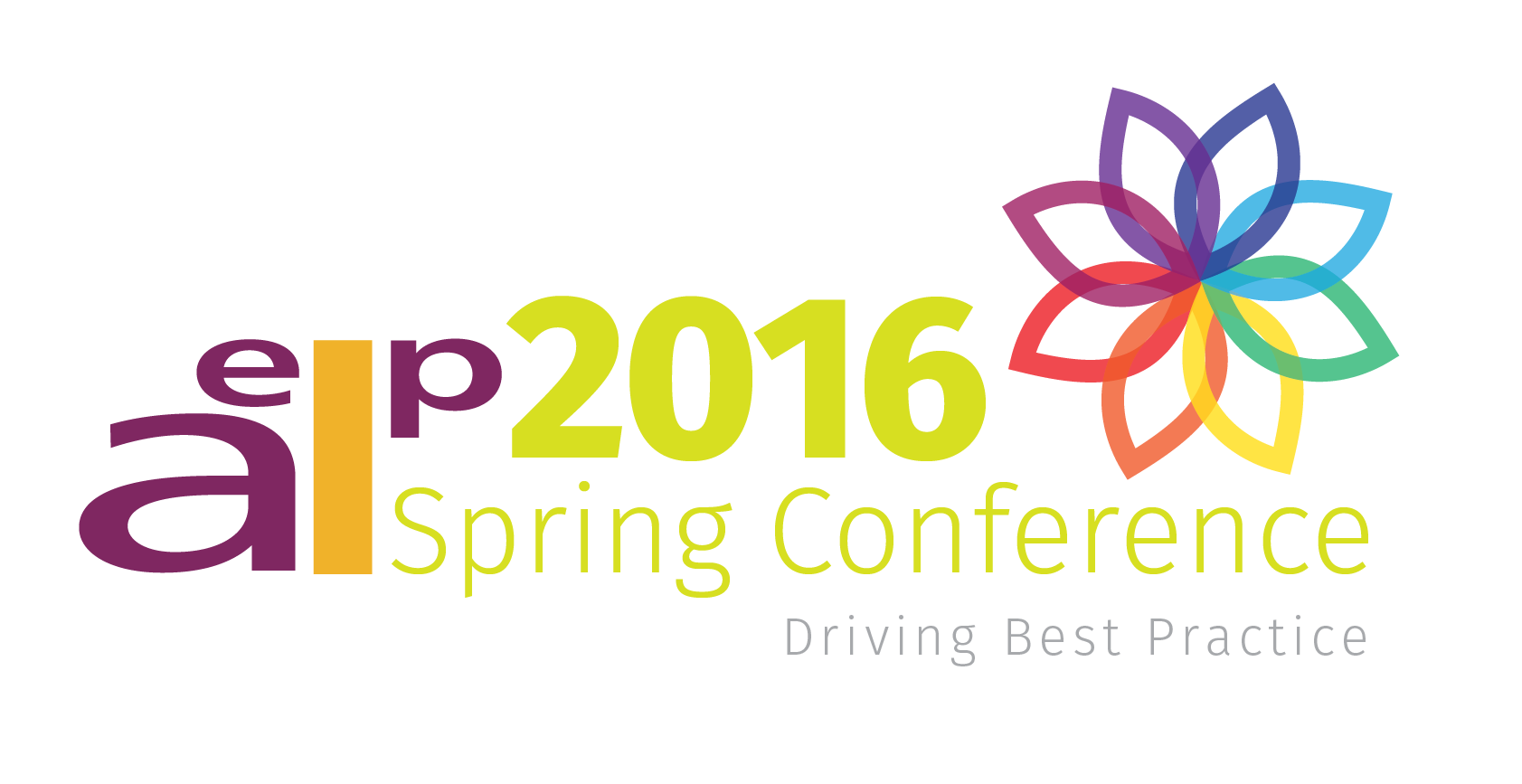Workshops
|
| WSAM-1 |
The Journey to Outstanding: A Perspective from DH Associates Caroline Murphy, Managing Director & Jacquie Williams, Team Manager, DH Associates |
| DH Associates were inspected in February 2016 and are the first apprenticeship provider to be judged outstanding under the new Common Inspection Framework. This workshop will be an opportunity to gain a perspective of the key themes during inspection. DH Associates will focus on the aspects of leadership, performance management, quality improvement and delivery that informed the outstanding judgement. |
|
| WSAM-2 |
Higher and Degree Apprenticeships Alison Cox, Chartered Management Institute |
| Find out more about the Leadership & Management Trailblazer and the approach taken to the development of the Chartered Manager Degree Apprenticeship – from development through to implementation. Find out what worked and what didn’t and how a close collaboration between employers and providers was vital to successful delivery of this new standard, and what opportunities there are for training providers within the CMDA. Also find out the latest on the suite of leadership and management standards now in development. |
|
| WSAM-3 |
Advanced Learner Loans Anna Sutton, Skills Funding Agency |
| This workshop will provide you with the opportunity to hear a brief overview of Advanced Learner Loans Policy for 2016 to 2017, and for the Skills Funding Agency to share some tools and ideas on what you might do to help make Loans work in your organisation. |
|
| WSAM-4 |
Employability: Building the New Profession
Liz Sewell, IEP |
| Careers now span fifty years. Employability skills will help people grow those careers. In this session we will consider how we can use the human and IT resources to support our learners. Liz Sewell, Director of the Institute of Employability Professionals, will offer insights, case studies, and practical ideas on how your organisation can get better employment outcomes. |
|
| WSAM-5 |
Greater Manchester’s pace-setting approach to devolved employment and skills Gemma Marsh, New Economy on behalf of Greater Manchester Combined Authority |
| Greater Manchester’s approach to devolved skills and employment….What does it mean for Providers’? The Workshop will cover from a Greater Manchester experience the following areas and show how a Combined Authority is trying to connect the dots!
|
|
| WSAM-6 |
Apprenticeship Levy Richard Guy, City & Guilds |
| Richard Guy from City & Guilds will give an overview of what we know - and what we don't - about the Apprenticeship levy; the policy, the plans for its implementation and how it fits into the wider drive for 3m Apprenticeships by 2020. | |
| WSAM-7 |
Moving from Frameworks to Standards Mike Cox, AELP and Richard Davis, Youthforce |
| This workshop will look at what providers are doing to transition from delivery of Apprenticeship frameworks to Apprenticeships standards. |
|
| WSAM-8 |
Trailblazers and Assessment Methodology Jamie Holland and Francesca Dineen, City and Guilds |
This workshop will cover:
|
|
| WSAM-9 |
Delivering Traineeships Ian Jelley, Fairtrain |
| What makes a Traineeship high quality? This session looks at all of the elements to successfully deliver Traineeships, from planning to delivery and outcomes. As a Group Training Association and developers of the national Work Experience Quality Standard accreditation, Fair Train is well placed to draw on best practice when it comes to employer engagement, preparing learners for employment and securing high quality work experience placements. Find out how Traineeships differ to your existing provision and make them work for you. |
|
| WSAM-10 | A changing Adult Skills Budget
Ann Grant, Christopher Bradley & Ian Knowles – Skills Funding Agency |
| This workshop will focus on the Adult Education Budget for 2016/17 and beyond including developing local commissioning. |
|
| WSPM-1 | Future Apprenticeships Support – lessons and next steps Mike Cox, AELP and Laurence Gates, ETF |
| Looking at what has been learnt from the initial phase of the Future Apprenticeships Support Programme, this workshop will share providers views on what key lessons they would like to share. It will also look to the future and gather delegate views on what areas they want for future support. |
|
| WSPM-2 |
Engaging employers under the apprenticeship reforms Richard Freeman, SCTP |
| The way employers and training providers do business together is changing in almost every way. This workshop will explore the strategic implications of the apprenticeship reforms on sales, design, external relations, delivery models and staffing - inviting an open and inclusive discussion about the ways in which providers of all sizes can innovate. The opportunities are out there, but we need to bold about how we seize them | |
| WSPM-3 |
Best SEND practice for WBL Sue Southwood, the Education and Training Foundation |
| The Foundation’s continuing professional development programme for practitioners recognises there will be a percentage of learners with special educational needs or disabilities (SEND) in any classroom or workshop. Supporting better outcomes for all learners in maths and English is a high priority for the Foundation and this workshop will outline the support we offer. It will also be an opportunity to contribute your views on Functional Skills reform and consider some of the key questions | |
| WSPM-4 |
Prevent Duty Alex Miles, WYLP |
| This workshop will help your understanding of the Prevent Duty & British Values and how these can be embedded & contextualised into apprenticeship delivery. The workshop will provide practical examples, an overview of the duty, providers' minimum requirements, training and support available. |
|
| WSPM-5 |
Blended Learning Essentials for the Vocational Education and Training Sector Lynne Taylerson, BLE Digital Champion, ALT & Cath Gladding, AELP |
| Join this session to learn about Blended Learning Essentials, an open course which will help you to implement blended learning, in order to improve your learners' experience and attainment. Lynne Taylerson, a BLE Digital Champion, will provide information about the course and share her own experience as a participant and digital champion. |
|
| WSPM-6 |
Supporting the development of English and maths across vocational programmes Claire Collins, the Education and Training Foundation |
|
This workshop will be led by Claire Collins, an associate of the Education and Training Foundation and a programme leader on a number of its English and Maths CPD activities. The workshop will enable participants to review approaches for developing learners’ English and maths skills on apprenticeship programmes, drawing on the Foundation’s successful maths and English ‘Vocational Vitaliser’ courses (from their English and Maths Pipeline programmes). Participants will experience some practical support strategies shared with vocational practitioners on these courses and have an opportunity to explore processes for running holistic vocational courses, where maths and English are developed holistically with vocational learning, towards Functional Skills or GCSE outcomes. |
|
| WSPM-7 |
English Devolution and ITPs Andy Gannon, AELP |
| As the pace of devolution policy increases, with further deals being announced as part of March's Budget, this workshop will offer an overview of the direction of policy and outline AELP's current position with regard to the devolution of skills policy and funding. It will also cover the progress of Area-Based Reviews and the position of ITPs in the reconfigured landscape of post-16 provision. You will have the chance, in this interactive session, to share your own local experiences with others and discuss ways in which AELP can develop its relationships at a local level to support providers responding to a devolved world. | |
| WSPM-8 |
Working with Prison Learners in Partnerships and Good Practice John Algar, HMPS and Chandry Mistry, People Plus |
| The Workshop will discuss the National Offender Management Co-financing Organisation Round 3 programme (NOMS CFO3) which is helping disengaged and socially excluded individuals with a history of offending to enter mainstream services or employment. The Offenders’ Learning and Skills Service (OLASS) went live across England on 31 July 2006 nearly 10 years ago and the Current Offenders’ Learning and Skills Service is on Phase 4 (OLASS 4) This session will discuss examples of good practice and what’s worked. What’s happening next ? Taking a fresh approach to work, education and training as it also addresses a participant’s personal barriers to finding and keeping a job. These can include issues such as drug and alcohol problems, family breakdown, homelessness or health. |
|
| WSPM-9 |
Careers Guidance and Student Recruitment Andy Pickles, Chief Executive Officer, U-Explore |
| This workshop will provide you with a cost effective solution for the delivery of careers advice and guidance within your organisation, to both support the progression of your learners and the engagement of learners from within your organisation and community. You will be introduced to www.startprofile.com which is free to all providers along with an insight in how this platform can support and evidence successful transition and deliver consistency and compliancy. |
|
| WSPM-10 |
ESIF Update Tricia Hartley, Campaign for Learning, Tom Cohen & Cat Barton, Ellfin Research |
| €3.5B of ESIF is finally here and funding calls are happening in various forms across England. This session will provide an overview of the continually emerging operational paperwork and process documentation as well as “horizon scanning” the ESIF landscape. It will cover: • Matched funding – the new eligibility guidelines • Operational expectations – the SFA and DWP guidance on output and outcome definitions • Payment models – from SFA unitised payments to the joys of DWP and 64-week payment tails • First Claim guidance • ESIF Opportunities – what should have come out by now and still hasn’t The session will also be an opportunity for exchanging experiences of ESIF so far and discussing and learning from others on how you view the implementation of the new ESIF guidelines |
|



